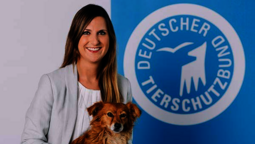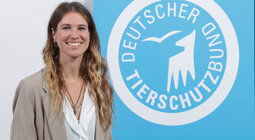In a new state-wide cat neutering campaign in Lower Saxony, animal welfare organizations, animal shelters and people in charge of feeding stations can have all cats that cannot be assigned an owner neutered by a vet free of charge. The campaign starts on November 7. The German Animal Welfare Federation and its Lower Saxony State Animal Welfare Federation are contributing a total of 20,000 euros to the campaign.
“We are delighted that the state of Lower Saxony is once again taking on this responsibility and providing 150,000 euros for the neutering project despite the difficult situation caused by the war in Ukraine and the ongoing coronavirus crisis,” says Dieter Ruhnke, Chairman of the Lower Saxony Animal Welfare Federation. Thomas Schröder, President of the German Animal Welfare Federation, clarifies: “Neutering is the only way to break the vicious circle of uncontrolled reproduction of free-roaming street cats.” As unneutered outdoor cats perpetuate the reproductive chain of free-roaming cats and the associated animal suffering, animal welfare campaigners are also appealing to cat owners to have their animals neutered.
Free-roaming cats are descended from unneutered outdoor cats from private households. As domesticated pets, they are not adapted to a life in the wild without human support. The animals often suffer from malnutrition and undernourishment, parasites or infectious diseases such as cat flu. “In order to prevent the animals from suffering pain, suffering and damage on a considerable scale, we need mandatory castration, identification and registration for cats from private households that live outdoors,” says Schröder. In Lower Saxony, 480 local authorities have already taken action and issued neutering bans to combat the uncontrolled reproduction of outdoor cats from private households. “We call on all other municipalities to follow the example of neighboring cities and municipalities that are already setting a good example,” says Ruhnke.
In order to have free-roaming cats neutered free of charge during the campaign period, associations and private cat protectors must register with the vets and confirm in writing that the animals are not living in private households. After neutering, the animals are marked with a chip, registered with FINDEFIX, the pet register of the German Animal Welfare Federation, and released back at the place of capture after an observation period. There, the cats continue to be observed, fed and given medical treatment if necessary.
This is the sixth time since the project was launched in spring 2018 that animal welfare activists have carried out the state-wide castrations in Lower Saxony in collaboration with the state animal welfare officer and the veterinary profession. So far, 13,226 cats have been neutered.







